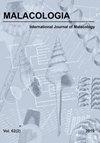On the Need for Antibiotics to Reduce Subject Losses and Biases in Experiments with Aquatic Molluscs
IF 1
4区 生物学
Q4 ZOOLOGY
引用次数: 0
Abstract
Biological research is frequently hampered, prevented, or biased by subject losses (Grafen, 1988; Weis, 2018). Subject losses force researchers to either repeat experiments or conduct analyses on a subset (the survivors) of the original experimental organisms. Repeating experiments has obvious financial and logistic consequences and offers no guarantee that losses will be fewer in subsequent efforts. Furthermore, data taken only on survivors is biased when mortality is correlated with variables of interest – the “missing fraction” problem (Grafen, 1988; Bennington & McGraw, 1995; Nakagawa & Freckleton, 2008). Subject losses reduce experimental sample size and balance and thereby also reduce statistical confidence, inferential power, and ultimately, the value of the research. Losses in aquatic research can stem from a wide range of causes such as inappropriate water chemistry, temperature, sudden change in physical parameters, or pathogens (Mori & Smith, 2019). Pathogens, in particular, can be a major cause of experimental subject mortality, even mass die-offs, due largely to the enclosed systems in which experiments are conducted (Kent et al., 2009; Mori et al., 2019). Yet even where pathogens cause little mortality, morbidity effects can similarly, though more cryptically, bias results (Kent et al. 2009). The best approach to protecting experiments where losses have been known to occur will often be to proactively prevent subject deaths and morbidity. Improved husbandry, including quarantines and preventive medication, can potentially reduce or eliminate subject losses and pathogen associated biases (McEwen & Fedorka-Cray, 2002). Preventive measures can introduce side-effects or bias of their own, such as gut or skin flora disruption which can impact experimental endpoints such as body weight (Carlson et al., 2017). Thus antibiotics should be considered only if benefits are likely to outweigh drawbacks for projects that are costly MALACOLOGIA, 2022, 64(2): 303–307在水生软体动物实验中需要抗生素以减少受试者损失和偏差
生物学研究经常受到受试者损失的阻碍、阻止或偏见(Grafen, 1988;Weis, 2018)。实验对象的丢失迫使研究人员要么重复实验,要么对原始实验生物的一个子集(幸存者)进行分析。重复实验会产生明显的财政和后勤后果,也不能保证以后的努力会减少损失。此外,当死亡率与感兴趣的变量(“缺失分数”问题)相关时,仅对幸存者采集的数据是有偏差的(Grafen, 1988;Bennington & McGraw, 1995;Nakagawa & Freckleton, 2008)。受试者损失减少了实验样本量和平衡,从而也降低了统计信心、推断能力,并最终降低了研究的价值。水生研究的损失可能源于多种原因,如不适当的水化学、温度、物理参数的突然变化或病原体(Mori & Smith, 2019)。特别是病原体,可能是实验对象死亡,甚至大规模死亡的主要原因,主要原因是进行实验的封闭系统(Kent等人,2009;Mori et al., 2019)。然而,即使在病原体造成的死亡率很小的地方,发病率的影响也可能类似地(尽管更神秘)产生偏倚结果(Kent et al. 2009)。保护已知发生损失的实验的最佳方法往往是主动预防受试者死亡和发病。改进畜牧业,包括检疫和预防性用药,可以潜在地减少或消除受试者损失和病原体相关偏差(McEwen & Fedorka-Cray, 2002年)。预防措施本身可能会带来副作用或偏差,例如肠道或皮肤菌群破坏,这会影响体重等实验终点(Carlson et al., 2017)。因此,只有在效益大于弊端的情况下,才应该考虑使用抗生素。中华生物医学工程学报,2022,64(2):303-307
本文章由计算机程序翻译,如有差异,请以英文原文为准。
求助全文
约1分钟内获得全文
求助全文
来源期刊

Malacologia
生物-动物学
CiteScore
2.00
自引率
0.00%
发文量
15
审稿时长
3 months
期刊介绍:
Malacologia publishes papers on all groups of the Mollusca. Malacologia specializes in publishing long papers and monographic treatments. Complete data are especially appreciated. Papers must be of interest to an international readership. Papers in systematics, ecology, population ecology, genetics, molecular genetics, evolution and phylogenetic treatments are especially welcomed. Also welcomed are letters to the editor involving papers published or issues of import to science of the day.
 求助内容:
求助内容: 应助结果提醒方式:
应助结果提醒方式:


